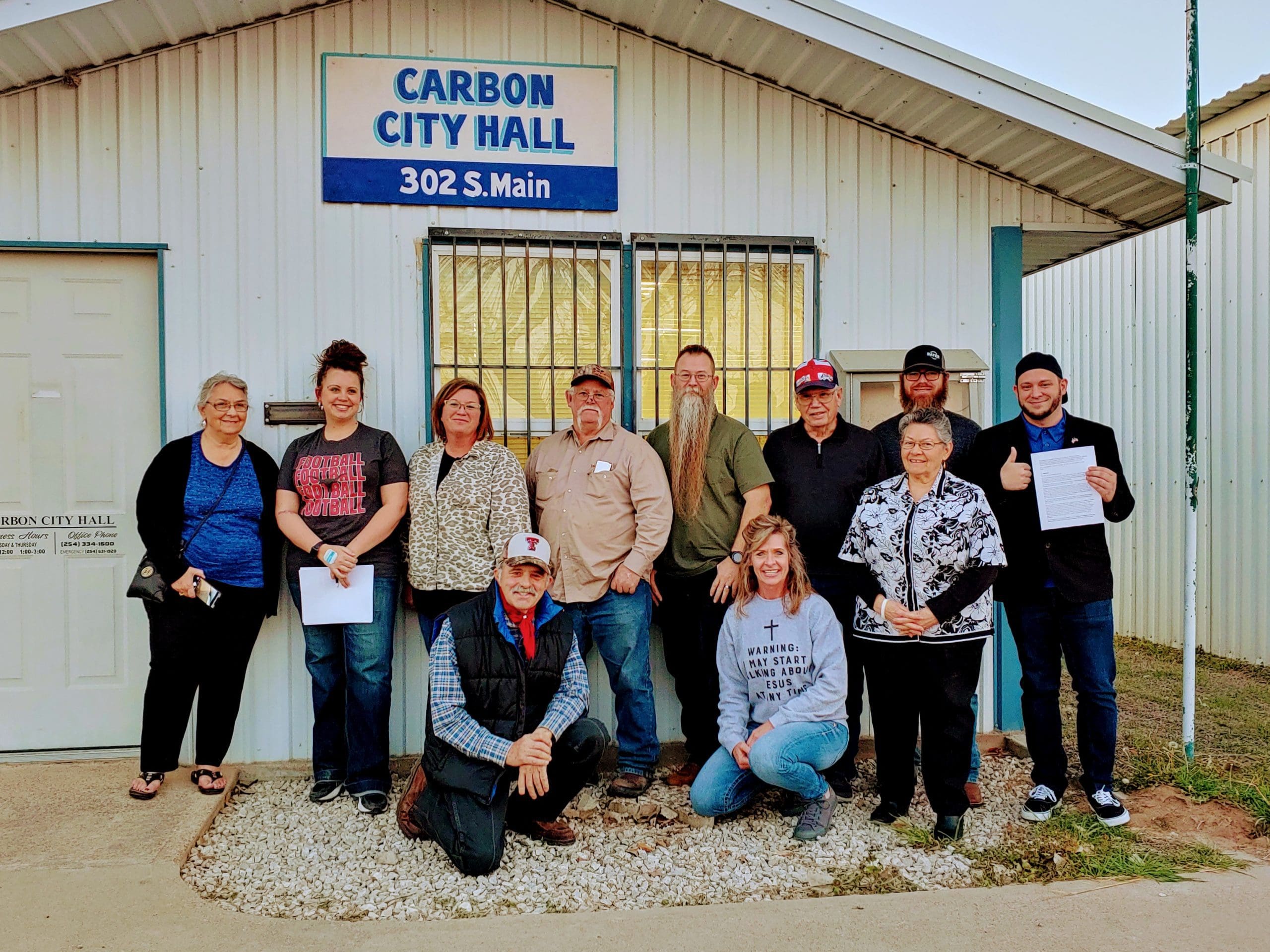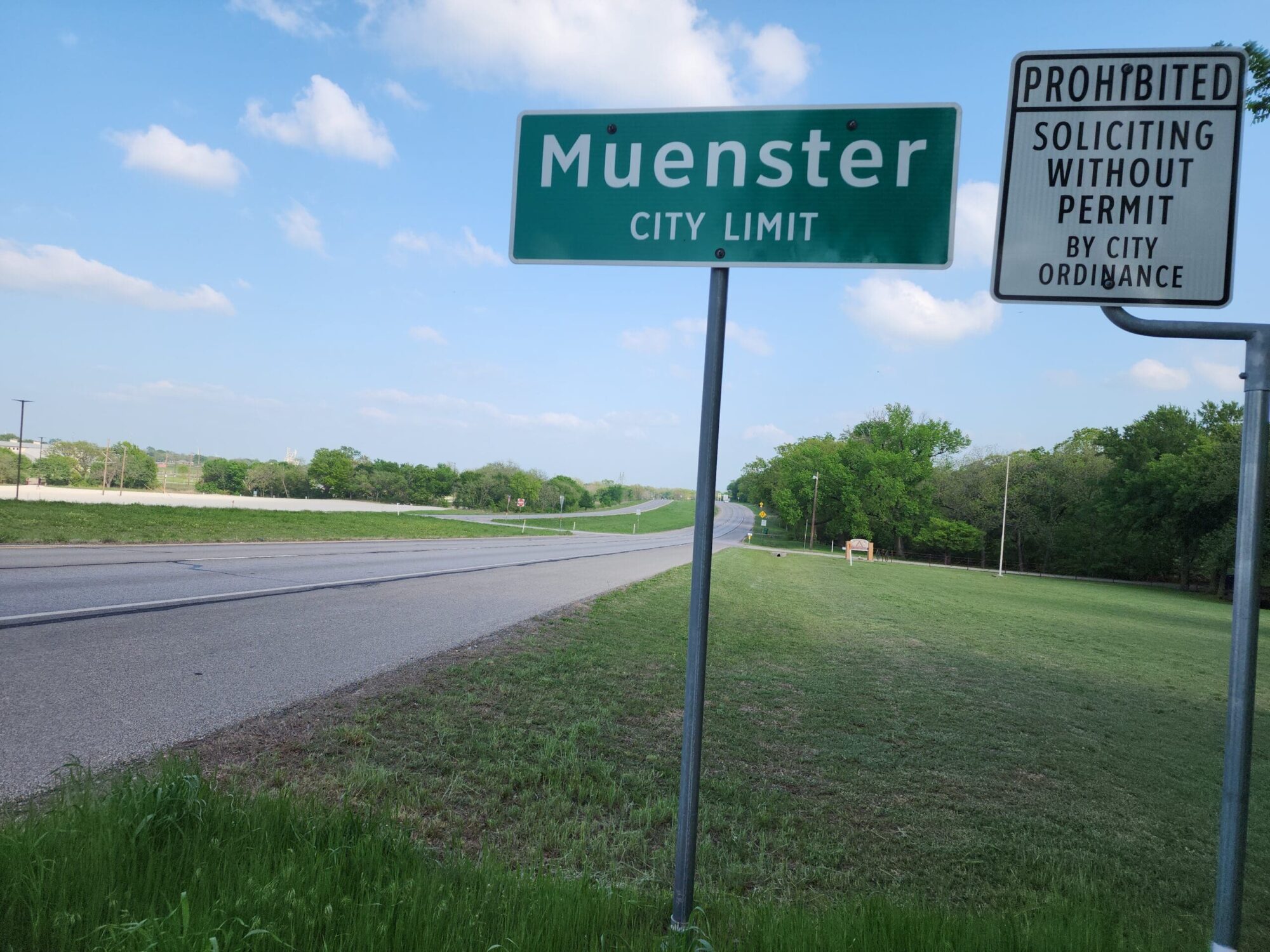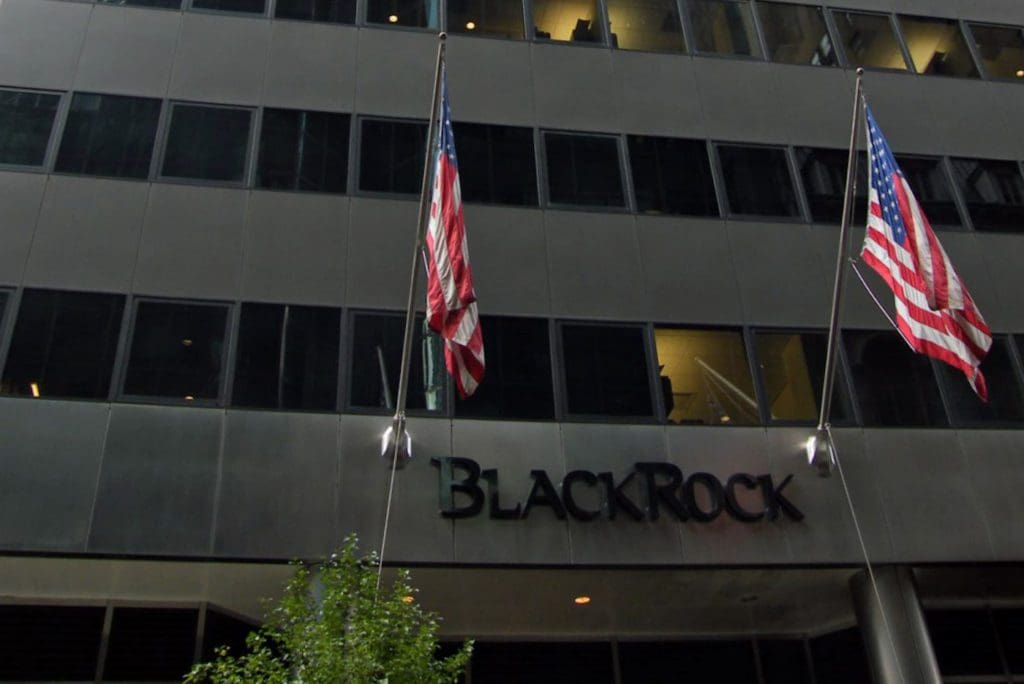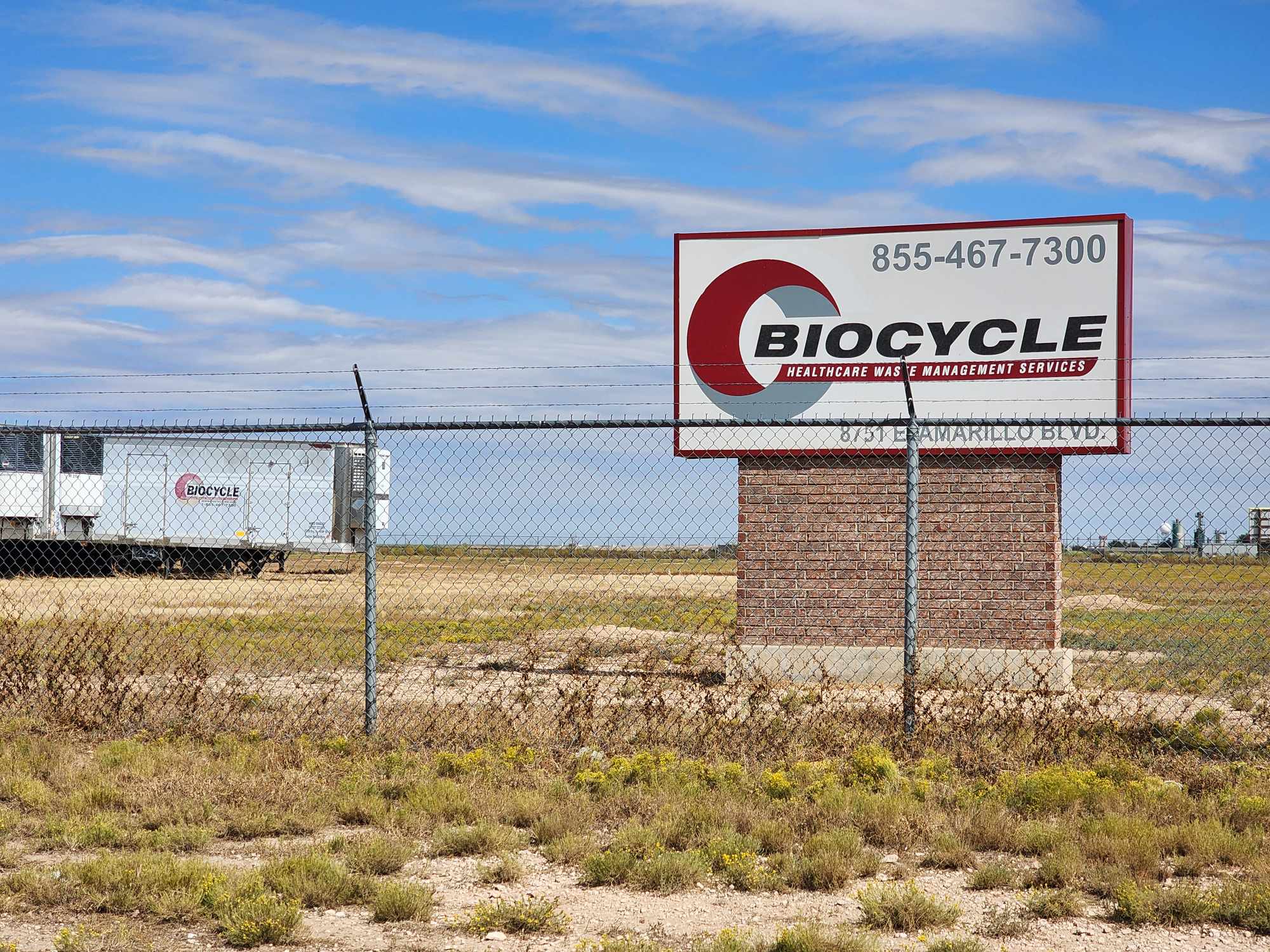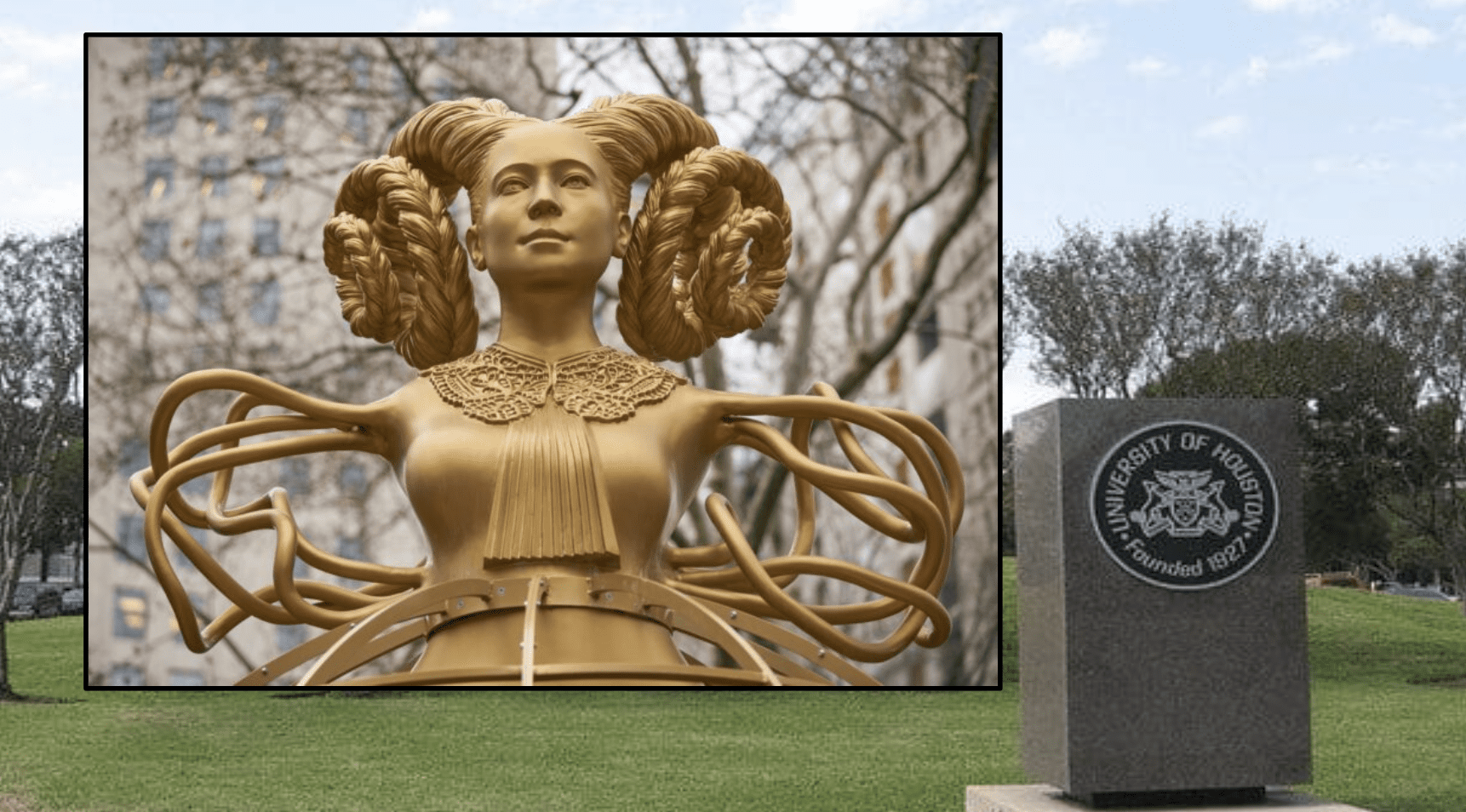On February 22, the mayor and city council of Carbon, Texas, met to take care of important city business in the packed, standing-room-only council meeting.
The latest action on the agenda was the opportunity to pass an ordinance that would immediately outlaw abortion within the city limits. The vote was unanimous and met by cheers from all in attendance.
The Carbon Ordinance states:
“It shall be unlawful for any person to procure or perform an abortion of any type and at any stage of pregnancy in the City of Carbon, Texas,” and, “it shall be unlawful for any person to knowingly aid or abet an abortion that occurs in the City of Carbon, Texas.”
Carbon, which is located about 60 miles southeast of Abilene and about 100 miles southwest of Fort Worth, is a very conservative city made up of 348 residents in Eastland County. The majority of the county’s voting population are conservative Republicans.
During Eastland County’s 2020 presidential election, a total of 87.24 percent (7,216) voted Republican, 11.87 percent (982) voted Democrat, and 0.89 percent (73) voted for other candidates.
Because of this, it makes sense that voters’ beliefs and values would line up with the Republican Party of Texas—a party unashamed about their desire to see abortion outlawed in the state.
It has been a priority among Texas Republicans for years, and now cities are being encouraged to make it a priority as well.
One of the planks of the Republican Party of Texas 2020 Platform reads, “We support the right of Texas municipalities to protect mothers and preborn children in their communities by passing enforceable city ordinances that ban abortions and abortion industry businesses within their city limits.”
Ninety-two percent of Republican Party of Texas delegates voted in favor of this plank being added to the 2020 party platform.
While one might think that cities in strong red counties are almost guaranteed to pass such an ordinance, it has been discovered officials in several conservative cities throughout Texas have been some of the strongest in opposition.
One example would be the City of Jacksboro in Jack County. In the 2020 presidential election, Jack County had a total of 90.4 percent (3,418) vote Republican, with only 8.8 percent (331) voting Democrat.
So how did Jacksboro vote on the Sanctuary City for the Unborn Ordinance? On two separate occasions—once on December 9, 2019, and another time on January 13, 2020—the city took no action.
The initiative, as a whole, has sought to be extremely careful with the ordinances that have been presented to each city council.
When a city is given a proposed Sanctuary City ordinance, which has been drafted specifically for that city, it is also given several accompanying documents—also drafted specifically for that city.
Among those documents is a fact sheet about the ordinance, a letter from representatives and senators from across the State of Texas in support of the effort, and a letter from an attorney—former Solicitor General of the State of Texas Jonathan F. Mitchell—who is willing to defend that ordinance at no cost to the city or taxpayers if they’re sued as a result of enacting it.
As the movement continues to grow, it is likely that there will come a time when others will attempt to make their own ordinances apart from the ones drafted by Sanctuary Cities for the Unborn. Those particular ordinances, and any lawsuits which may result from the passing of them, will not carry with it the same promise of legal representation “at no cost to the city and taxpayers,” which previous cities have experienced.
The reason for this is simple: Sanctuary Cities for the Unborn can only legally stand behind the ordinances that are legally solid, have qualified legal representation, and are able to withstand a legal challenge.
In May 2020, when seven cities in East Texas that passed the ordinance were sued by the ACLU, Mitchell represented them. After three months, the lawsuit was withdrawn and didn’t cost the cities or the taxpayers one cent, and abortion remains outlawed.
Throughout the entire process, Right To Life of East Texas and Texas Right To Life did not abandon these cities but stood with them throughout the entire lawsuit. This is because the Sanctuary Cities for the Unborn Ordinances, which are promoted by Right To Life of East Texas and Texas Right To Life, were not just written with care for the unborn but were written with care for the born as well—desiring to keep cities from finding themselves in a lawsuit they may not be able to win.
Carefully drafted ordinances, backed with proper legal representation, are needed now more than ever.
In January, on the 48th anniversary of Roe v. Wade, President Joe Biden and Vice President Kamala Harris committed to abortion access in every zip code.
Carbon is the only city in the 76435 zip code. Like the cities of Grapeland and Goldsmith, Carbon wanted to make sure the murder of unborn children by abortion could never legally take place under city law within their city limits.
Carbon’s ordinance contains two major enforcement mechanisms: the public enforcement mechanism and the private enforcement mechanism.
The public enforcement mechanism establishes fines against the abortionist and anyone who aids and abets the abortionist for any abortion that takes place within the city limits.
However, the ordinance is clear that these fines cannot be imposed unless it is determined that:
(1) The individual seeking to impose the penalty upon the one who committed the unlawful act will not create an “undue burden” on women seeking abortions, (2) the person, corporation, or entity who committed the unlawful act of abortion lacks standing to assert the third-party rights of women seeking abortions in court, or (3) Roe v. Wade and Planned Parenthood v. Casey finds themselves overturned by the Supreme Court of the United States.
This is only one section of the ordinance, and the enforceability of this one section is not immediate but dependent upon other factors.
Unlike the public enforcement mechanism, the private enforcement mechanism is immediately enforceable.
The private enforcement section of the ordinance states:
Any person, corporation, or entity that commits an unlawful … other than the mother of the unborn child that has been aborted, shall be liable in tort to a surviving relative of the aborted unborn child, including the unborn child’s mother, father, grandparents, siblings or half-siblings. The person or entity that committed the unlawful act shall be liable to each surviving relative of the aborted unborn child for: (a) Compensatory damages, including damages for emotional distress; (b) Punitive damages; and (c) Costs and attorneys’ fees.
Section F-4 of the ordinance reads, “Private enforcement … may be brought against any person, corporation, or entity that commits an unlawful act … upon the effective date of the ordinance, regardless of whether the Supreme Court has overruled Roe v. Wade, 410 U.S. 113 (1973), or Planned Parenthood v. Casey, 505 U.S. 833 (1992), and regardless of whether the current jurisprudence of the Supreme Court permits states and municipalities to punish those who violate abortion prohibitions.”
More cities throughout the great State of Texas are expected to outlaw abortion in the coming weeks.
For more information about the Sanctuary Cities for the Unborn Initiative, visit www.sanctuarycitiesfortheunborn.com.
City officials who are interested in seeing their city pass an enforceable ordinance outlawing abortion are encouraged to send an email to markleedickson@gmail.com.
This is a commentary published with the author’s permission. If you wish to submit a commentary to Texas Scorecard, please submit your article to submission@texasscorecard.com.
